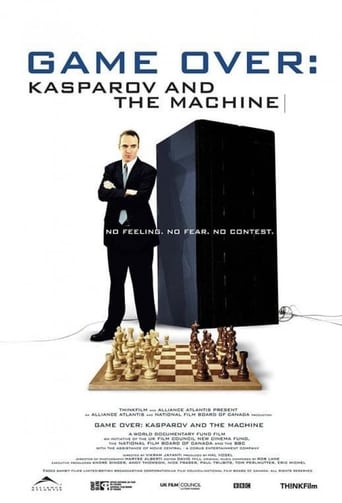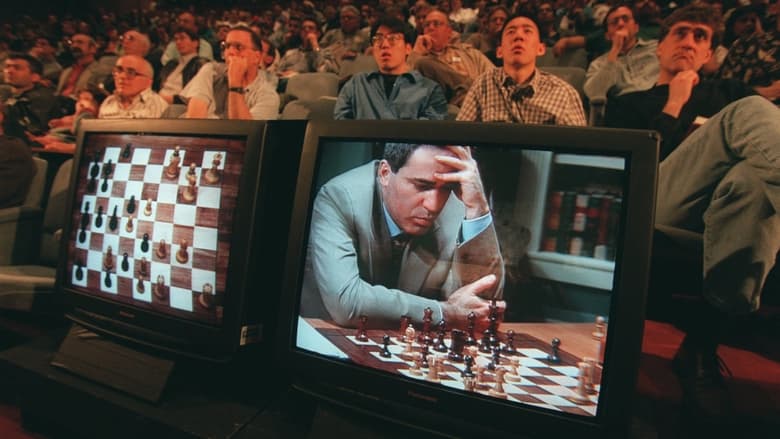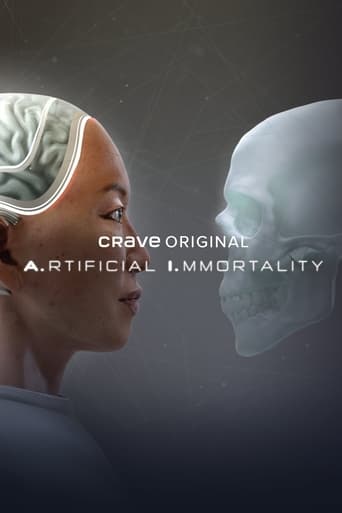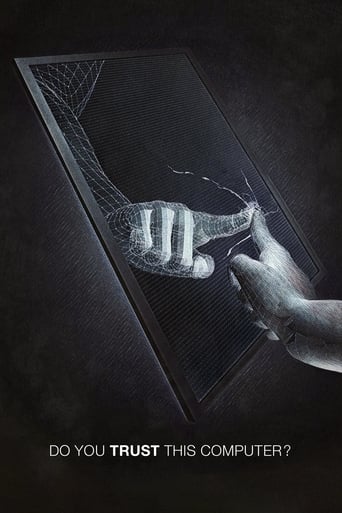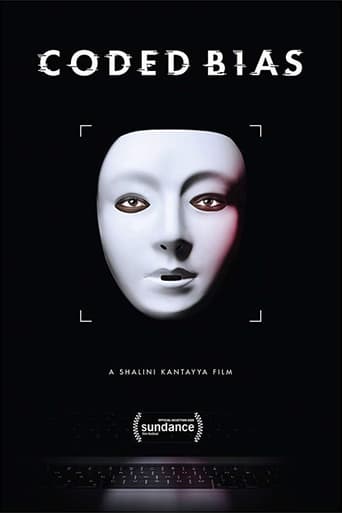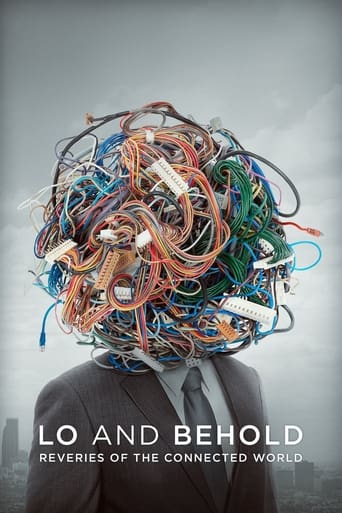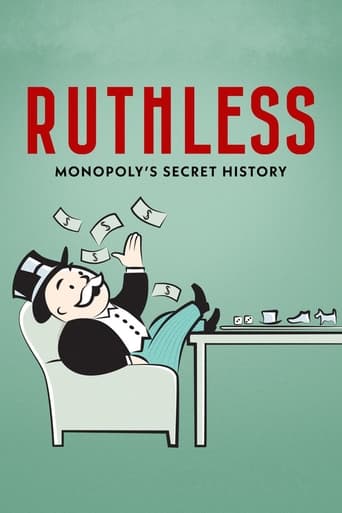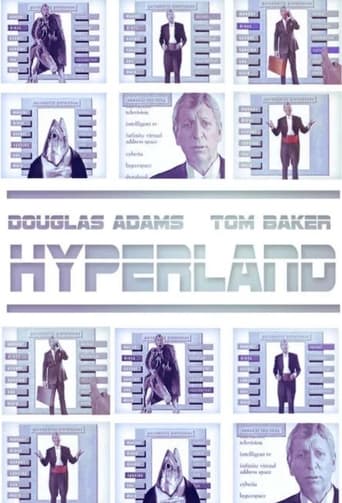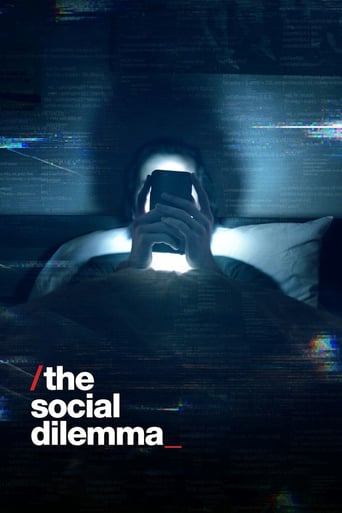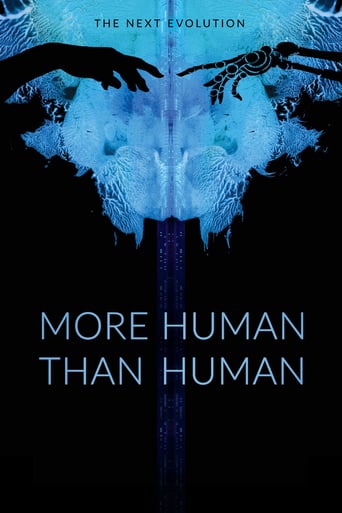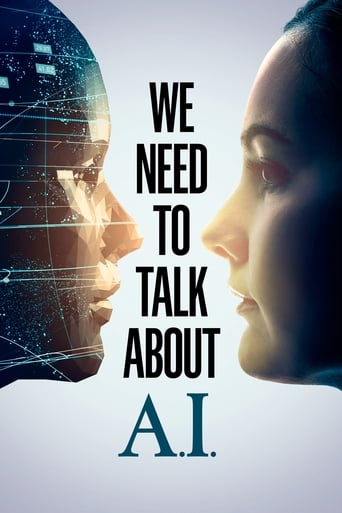Game Over: Kasparov and the Machine (2003)
Garry Kasparov is possibly the greatest chess player who has ever lived. In 1997, he played a match against the greatest chess computer: IBM's Deep Blue. He lost. This film depicts the drama that happened away from the chess board from Kasparov's perspective. It explores the psychological aspects of the game and the paranoia surrounding IBM's ultimate chess machine.
Watch Trailer
Cast
Similar titles
Reviews
Fun premise, good actors, bad writing. This film seemed to have potential at the beginning but it quickly devolves into a trite action film. Ultimately it's very boring.
This is a small, humorous movie in some ways, but it has a huge heart. What a nice experience.
Exactly the movie you think it is, but not the movie you want it to be.
By the time the dramatic fireworks start popping off, each one feels earned.
I should first point out that I'm just a couple of ear hairs past novice level when it comes to chess, so I'm not a complete outsider to the subject at hand...just on the periphery. But I digress."Game Over" isn't a documentary so much as a position paper, the kind that an insecure college freshman with a chip on his shoulder would write for a first semester English class. (I should know.) There's tantalizing material here that the director, like a bad chess player, doesn't follow up on because he's fixated on other stuff that's more immediately gratifying. Mainly attacks.I'll get this out of the way now: the film is unapologetically biased. The director's reverential attitude toward Garry Kasparov and contempt for the IBM team comes through loud and clear in just about every frame. There is no ambiguity--no real ambiguity, just the "you decide" kind that's so common in those paranormal-themed TV shows on the Discovery Channel where you just know what *they* think the truth is. The film takes Kasparov's assertions at face value: *of course* IBM must have had human hands behind the scenes helping Deep Blue; they had to have been playing mind games to break him; naturally they wouldn't let him look at the logs--something fishy's going on! When the IBM boffins get the camera, every single one is made to look like an arrogant, lying sum'bitch. The conspiracy angle is played up and up, bolstered by the now well-noted creepy (and very annoying) whispering and cutaways to The Turk. Our director (no, I don't remember his name and would be too impatient to keep typing it) doesn't let up on hammering his point into our heads, and certainly doesn't provide us with sufficient material to truly make up our own minds about What Really Happened. I won't take sides on that subject, other than to say that nowadays the idea of a computer trouncing a top Grandmaster certainly doesn't seem very controversial to me, although at the time I can understand how Kasparov could have gotten freaked.So what we have here could have been a good hour or so program on one of those cable channels that specializes in nonfiction programming. Yes, I'm sure they could have pruned it down into a much tighter picture if they'd just lost all the superfluous Turk and eerie-corridor shots, not to mention annoying commentary from Kasparov's manager and others.But that's not what's really fascinating in this movie. Even without the kooky paranoia angle (except that which comes straight from Kasparov) we have a very compelling human drama waiting to be explored: man vs machine; man vs corporation; man vs his own ego, reputation, and past. Kasparov is an engaging and complex figure, cocky at the beginning, perplexed and frantic in the middle, and vulnerable and all too human at the end. The unbeatable met his match and it changed him irrevocably; the story of Kasparov vs Deep Blue is classic tragedy. Even the programming team didn't get to gloat. I would have liked to hear more about why, in the words of the lead Asian programmer, "it sucked".But villains don't get to tell their side of the story, and I doubt our director knew that he had a classic tragedy to tell, or even what tragedy is. (I also don't get much sense that he knows much about chess itself either.) In his hands, it's just plain old melodrama--based, as they say on TV, on a true story. Good guys, bad guys, and a lot of padding. I basically would have preferred if Kasparov and the IBM people would have just been allowed to tell their stories in their own way, they're clearly interesting enough subjects without the "help" of the director's editorializing...but WITH the help of position diagrams, commentary on the games themselves from chess masters, etc. That might have given even lay viewers some context, an appreciation of the deeply complex analysis over which gray matter grappled with silicon.It's reasonably well-made, though, from a technical standpoint. There's some nice camera-work and editing too, just not enough, and at the same time too much. Ponder what "Game Over" (no subtitle) would have looked like in the hands of, say, Frederick Wiseman. Just as an experiment.
a convincingly slanted take on the events surrounding deep blue vs kasparov.well put together and presented (except the whispery narration).many negative reactions on here, but they seem to be based on expectations that the film would be something its not. sort of silly to blast a movie for that, but hey.certainly an editorial rather than a documentary. pretty even handed, but ultimately agenda driven.not that that is a bad thing by any means. leave your expectations at the door, and just accept it for what it is.
Game Over chronicles the infamous chess rematch between world champion Gary Kasparov and Deep Blue, an IBM supercomputer specially designed for the game that took over 30 man-years to create. The film itself is a mere 85 minutes and wastes no time making its assault on IBM, starting off with a damning reference to "The Turk," a famous hoax which purported to be a chess automaton. Roughly half of the film continues this bare-knuckle attack, with the director using creepy fade shots interspersed with interviews with IBM employees and an annoying whisper voice commentary to clearly inform the audience of who the "bad guys" are. This blatant taking of sides from early on is somewhat distracting to the viewer, as the facts presented later seem questionable due to the overwhelming bias of the filmmaker. For example, the film notably does not mention one of the programmer's attempts to stage another rematch between Kasparov and Deep Blue. Seeing as one of the primary arguments used to discredit Deep Blue's win is the refusal of a rematch on IBM's part, it seems outright irresponsible to ignore this important fact completely.The other, and much better, half of the film is the story of Gary Kasprov and the trials and tribulations he faced during his match against Deep Blue in 1997. The film shows a side of Kasparov many may be unfamiliar with. While the mainstream media at the time seemed bent on selling him as an arrogant, flustered, and tactless mad scientist of sorts, Kasparov proves the contrary with his charisma and wit. He acts as a kind of tour guide throughout the film, taking the viewer everywhere from the headquarters of the Soviet chess program to the site of the match in New York. Not surprisingly, most viewers will find themselves rooting for a considerably humanized Kasparov and feeling the sting of defeat as the overwhelming pressure of the press, the matches and the future of chess all wreak havoc on his concentration.Unfortunately for chess buffs, the film itself pays little attention to the actual match itself. It gives a brief description of how each side did in each game and briefly points out the move Kasparov thought was too "uncomputer-like" to have been made by a machine. The DVD, however, does have a fairly detailed reenactment of the matches done in Chessmaster, complete with commentary. The unbalanced and frankly boring and repetitive slam on IBM earns a 3, but the compelling story of Gary Kasparov earns a 9, making this film a 6 over all. If you are interested in the subject, it's worth the rent but the attack on IBM seems too vicious considering the hazy circumstances.
Kasparov vs. Deep Blue is no doubt a fascinating story, but I don't think you'd know it by watching this movie. I think it focuses too much on the conspiracy theory that IBM cheated...and what does this theory hinge upon? The idea that at one point the computer made a move that "looked human". I am not a chess grandmaster or a computer scientist. And while I don't doubt that the move looked human, to me it doesn't seem beyond the realm of possibility that the most powerful chess-playing computer ever created could make a surprising move...or that such a machine could beat even a genius like Kasparov. The movie gets way too much mileage out of this theory, and not enough out of the personalities of the people involved...that could have made it a much more interesting story. The direction also relies way too much on the conceits of a pointlessly whispered narration, and the imagery of an 18th century chess-playing machine that looks like one of those animatronic gypsy fortunetellers you see at the carnival. Also the story was slowed down by many empty shots of Kasparov revisiting "the scene of the crime". I don't doubt that Kasparov and the chess community found IBM's behavior vexing, but I don't think it's any different than you would find from any other big corporation. At the end of the movie, you are left with the feeling that Kasparov is a huge crybaby and the Deep Blue programmers are either victims or cheats. I think if the filmmaker wanted the viewer to believe the conspiracy theory (which he almost certainly did), he should have presented a lot more evidence. In fact, more evidence would have been a good idea in the first place. The whole thing left me with a sour taste in my mouth.
